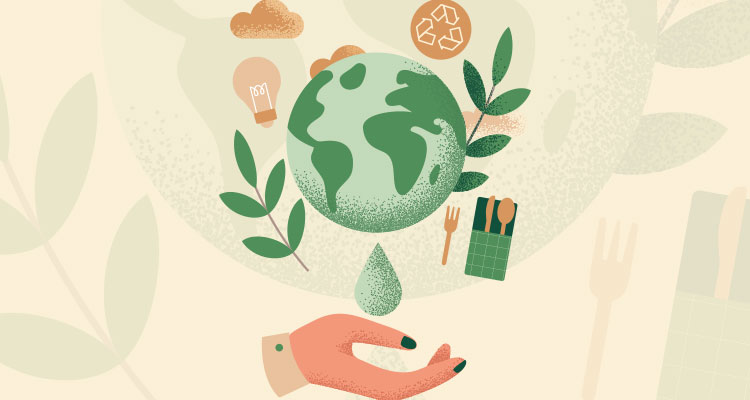Let me start with a really simple definition.
Sustainability focusses on meeting the needs of the present without compromising the ability of future generations to meet their needs.
The concept of sustainability has traditionally been composed of three pillars: economic, environmental and social – also known informally as profits, planet and people. The increasingly common rhetoric is that profits will not be possible without increasing attention on the planet which will, in turn, protect people. I think (hope) we will increasingly see a world in which it is accepted that one can’t create profits without consideration for people and the environment. Whilst it may not seem the case now, I am strongly of the view that we will move into a post-consumer age within the next generation.
Alongside the sustainability definition sits the principal of the circular economy. Whether considering the water-cycle, the clean air we breath (or not) or the natural resources that we use or, indeed, life itself. Mother Nature uses circular principles in everything she does but, in the last century of industrialisation and, more recently, with the post-war consumer-boom, humans have done away with this in many ways of life. Disposability, time-to market and waste generation are endemic in our society and this needs to change, very simply, to protect the air we breath and water we drink.
Post-pandemic the environmental issues we face – the climate crisis – have gone to the top of the agenda. I see it in the fashion, property and transport industry, to name but a few, and I suspect supermarkets will come under increasing scrutiny as discussions around food security come to the fore post-Brexit.
At a School level, the recently re-drafted Strategic Plan for the school includes a new core strategy relating to ‘contribution to social impact, the environment and heritage.’ The School openly states its intention to be net carbon neutral by 2050.
The Stowe Charter, written by the pupils, states that “the Stowe community has a wider responsibility to respect our environment with its unique historic heritage and we should be aware of the precious eco-system we inhabit. This includes actions such as recycling, reducing food waste and saving energy.”
So what are the Old Stoic Society (OSS) doing? One of our main aims as a Society is to provide a lifelong support service to our Members and we want to ensure this is done as sustainably as possible so that we do not contribute to further climate change, biodiversity lost and environmental degradation.
In my final year as Chair of the OSS I will be working on a strategy to deliver a more sustainable OSS (the SOSS…?) which will be looking at the following areas:
- OS Office – staff transport; use of energy, water and other resources
- External suppliers – renewable energy and utilities; waste and recycling – a lot of this is integral to the School
- Events – catering for events; choice of venues; scrutinising suppliers and procurement
- Members – asking for collective consciousness about how we consume in relation to the Society and also in our everyday lives. Providing resources, ideas and support to our Members, in particular relating to their attendance at our events and transport to those events
As these changes become part of everyday life, we hope that hopefully the smallest of efforts can make a big collective difference and the OSS intends to do its part in that process. All we ask of you, our Members, is that you look at how you can make a difference and we as a Society will do our best, when you attend one of our events, to support you in doing so.
In terms of supporting the School we will do all we can in terms of the OS Office, careers advice, work experience and mentoring to help with this process. If you have any relevant experience and would like to get involved, then please get in touch.
Wishing you all a sustainable, happy and healthy 2021.
Hannah Durden (Nugent 01), Old Stoic Society Chair

